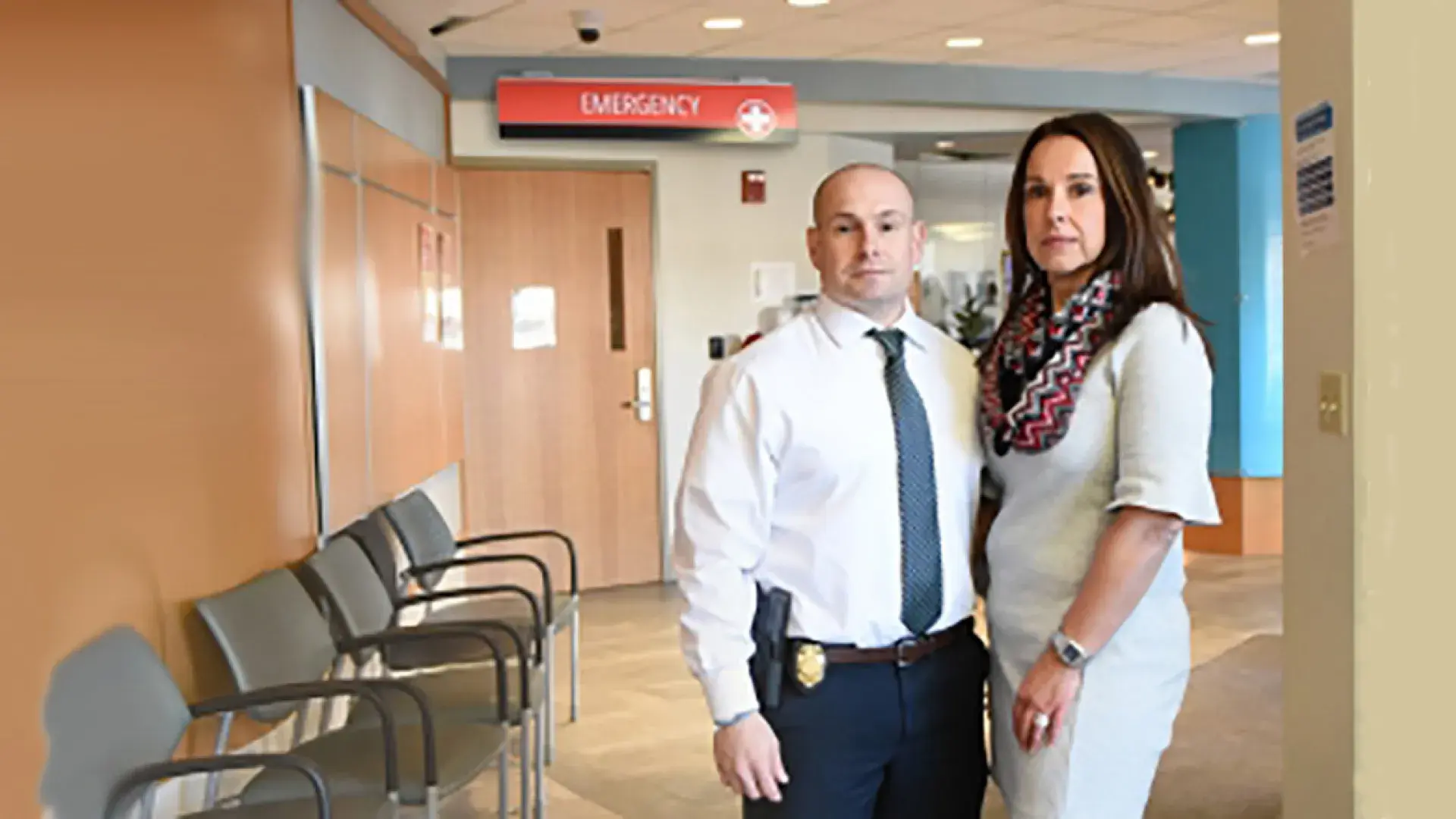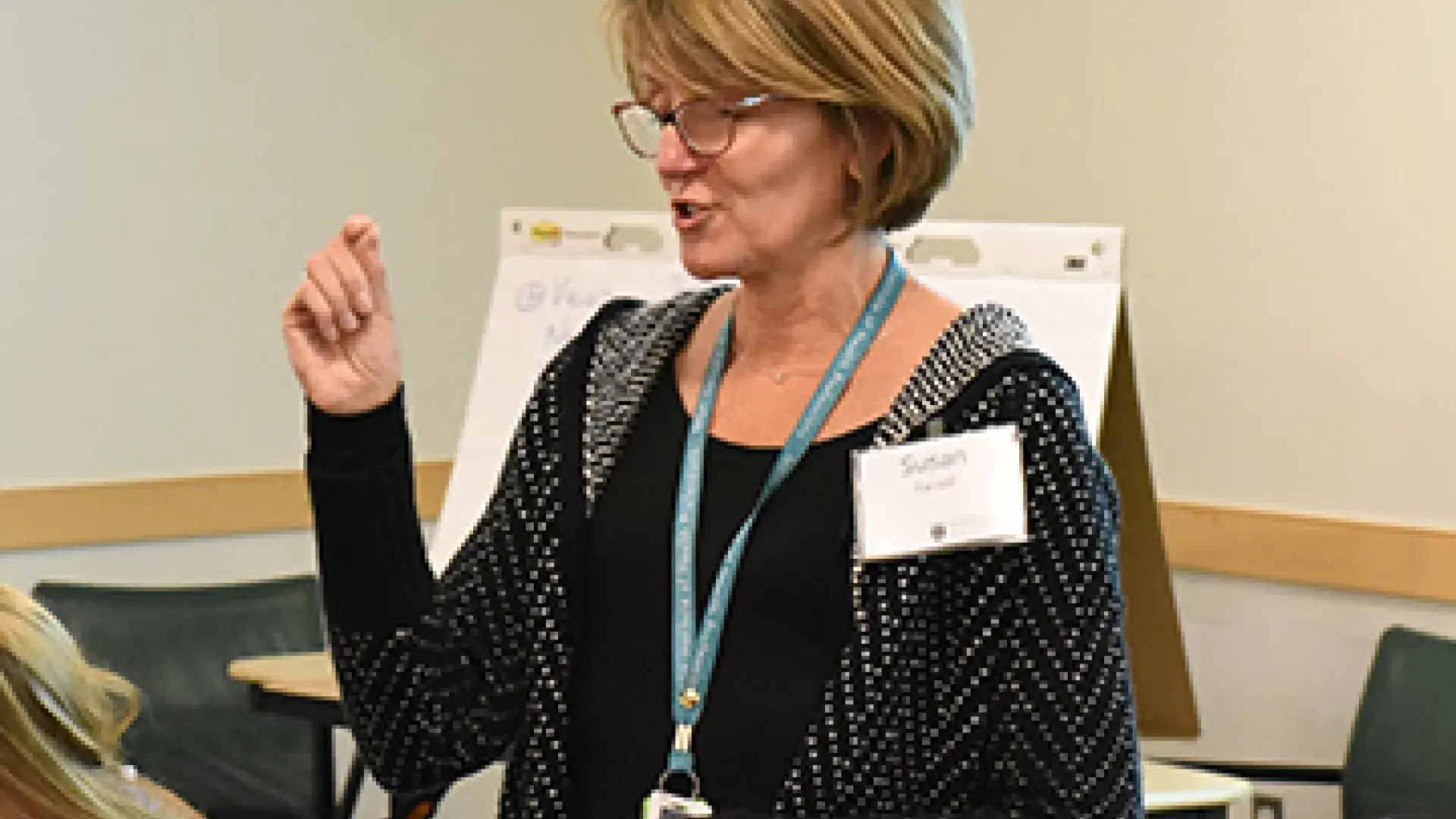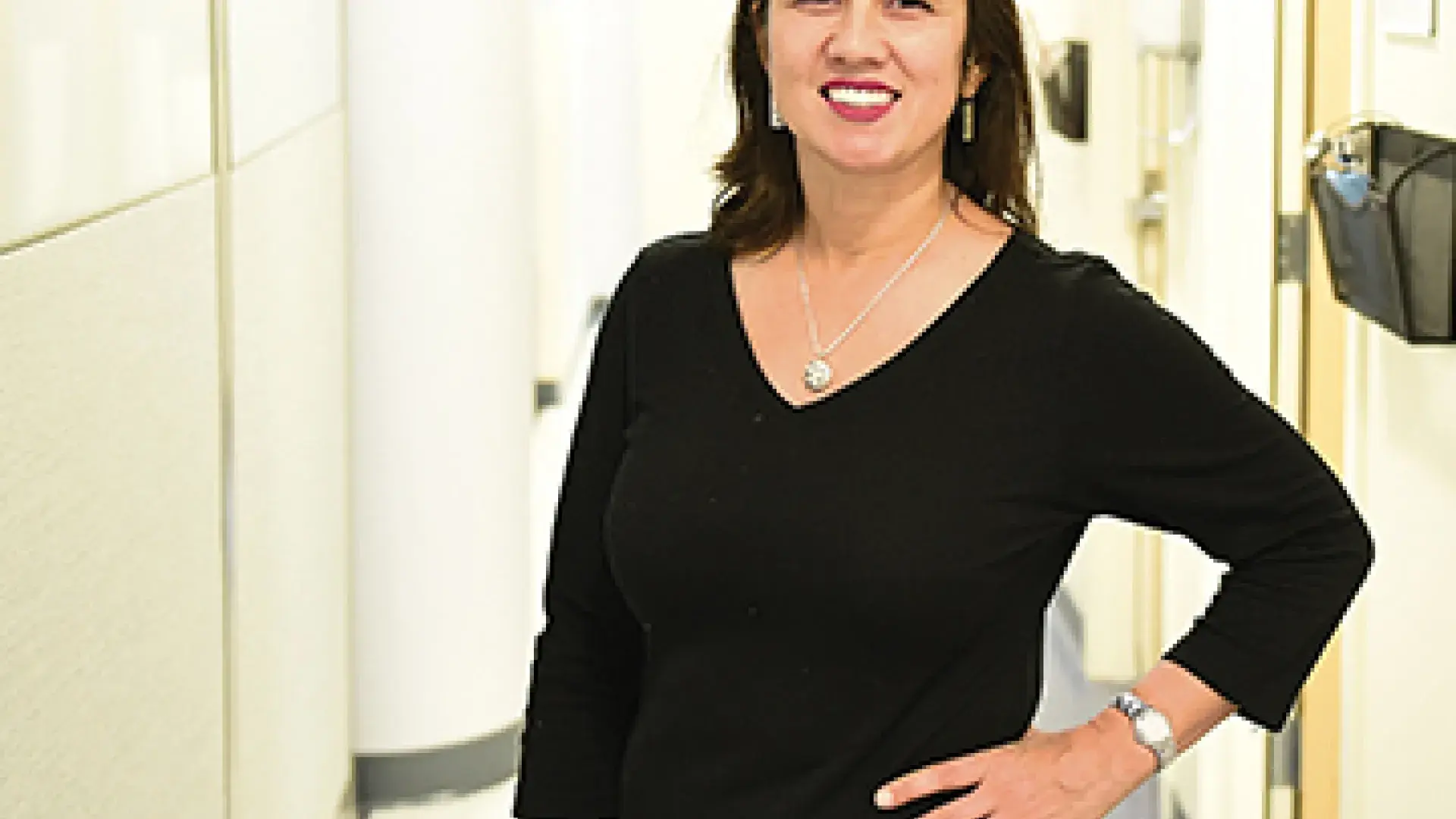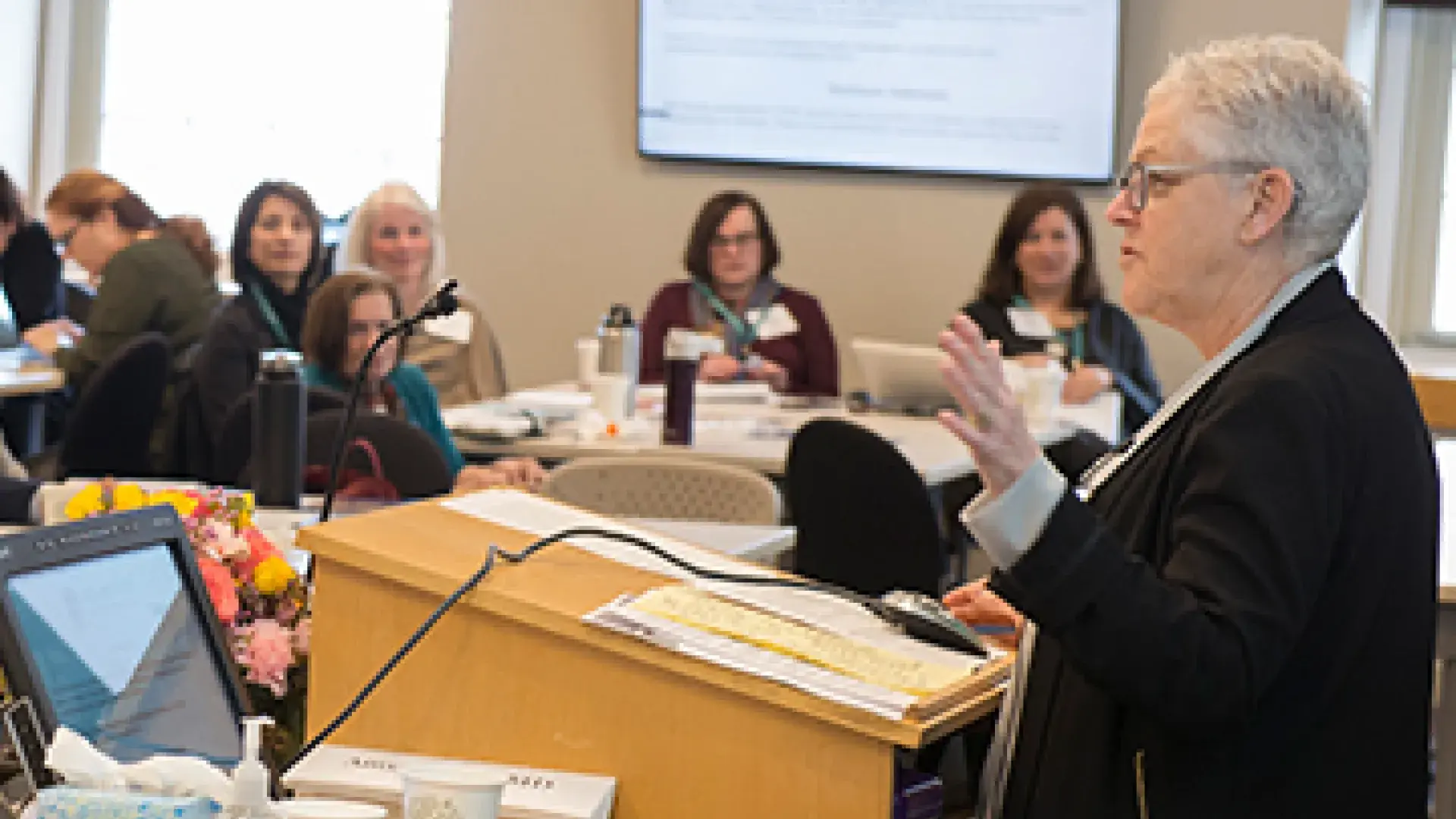
When the MGH Institute’s Department of Continuing and Professional Development (CPD) was created in 2017, its mission was to create and support innovative continuing professional development that advances interprofessional, team-based skills and performan
A Hidden Issue
Derek Belong is a captain for the New Bedford Police Department. Michele Rodrigues-Belong is the director of emergency services at South Coast Hospital Group. Together, the Belongs are working to make New Bedford a place where survivors of human trafficking can get help, thanks to what they learned at the “Human Trafficking Education and Training Academy,” a two-day workshop sponsored last fall by CPD in collaboration with HEAL Trafficking, a national education and advocacy group.
The course gave the couple ideas about how police and medical personnel can collaborate to combat a situation that often is hidden in plain sight. “We have a large immigrant population, and they often are vulnerable to trafficking,” says Belong, who notes that he encounters human, sex, and labor trafficking regularly. “Police officers have an opportunity to be someone’s safe person. Yes, the job’s about solving crimes, but with training, police officers can be the safe person that someone finally talks to.”
Rodrigues-Belong, who has a master’s degree in nursing administration, echoes the need for a similar approach from a health care perspective. “The literature says that at least 85 percent of people who have been trafficked report that they have also had at least one emergency department visit. That’s a huge number, and it means we’re missing a very large segment of the population if we don’t know to ask the right questions,” she says. “We have to build relationships and ask questions when patients come in to see if there are any red flags, like if they work 18-hour days.
“We are here to provide assistance and resources, quickly and safely, when the victim is ready,” she adds, “but this is about much more than that. It’s about getting people out of situations where they are being taken advantage of.”
To Susan Farrell, the director of CPD, what the couple experienced is a perfect example of how the department’s myriad offerings are designed to effect change. “We design our courses specifically to help health care providers do their own work better and learn how to collaborate more effectively with others,” says Dr. Farrell, an emergency physician with over 20 years of experience in medical education at Harvard Medical School and a Master of Education from the Harvard Graduate School of Education. “It’s a way of exposing the Institute’s mission and expertise to a wider audience.”
It’s also a good example of how CPD offerings reach beyond the immediate health care community and create experiences that foster shared learning between participants from different backgrounds. “The course was an exciting opportunity to network with people from across the country who could help me become a better law enforcement educator, especially when it comes to training police officers about how to approach victims,” Belong says.
A Literacy Gap in Children
Cindy Olson, an elementary school reading specialist at the Parkview School in Easton, Mass., had become increasingly concerned at what she was seeing in her classes. “What I have been noticing more and more over the past years is how language issues are mixed in with reading issues,” says Olson, who has 25 years of experience. “Children are having difficulty understanding how words and sentences go together to make meaning.”
Wanting to keep up with the latest trends on how to engage children more effectively, she attended “Closing the Literacy Gap in Elementary Education: The Science of Language & Literacy.” The two-day course was taught by two of the MGH Institute’s most renowned communication sciences and disorders researchers—Dr. Tiffany Hogan, director of the school’s Speech and Language (SAiL) Literacy Lab, which focuses on improving educational outcomes for children and adults with speech, language, and reading impairments, and Dr. Joanna Christodoulou, head of the BEAM Team, which uses behavioral and brain data to improve student outcomes and optimize educational interventions for struggling learners.
During the program, Olson says she learned that brain scans confirm what she sees at the elementary school: When children have a learning disability, crucial areas of their brains aren’t being activated when they read. It also addressed another concern of Olson’s—the effect of technology on children’s communication skills.
“There’s been a huge shift in society away from conversation,” she notes. “Families don’t talk as much at home as they used to. Middle school friends text each other instead of calling, and sometimes they text each other while in the same room to avoid talking. And often it’s kids from very privileged backgrounds who converse the least because they have the most devices.”
Since attending the course, Olson has shared her newfound knowledge with her colleagues and has launched a new approach. “Before, if kindergarten children didn’t know their letters and letter sounds in the fall, we would drill them,” she explains. “This year, we decided that these kids really need more of a language base. So every day we decided to read a picture book to them and then have them discuss the book.”
The school’s four kindergarten classes are being split between the two approaches. Olson plans to evaluate the children’s learning to compare each group’s progress, the start of what she hopes is an improved teaching and learning strategy.
An Interprofessional Approach
Janice John was already quite familiar with interprofessional education. The associate medical director at Cambridge Health Alliance’s Assembly Square Care Center in Somerville, John had been immersed in the team-based learning and care approach in her previous role as a co-director of the Crimson Care Collaborative. The program, which brings together medical and dental students from Harvard University with nurse practitioner and physician assistant students from the MGH Institute, provides primary care services at seven clinical sites in Greater Boston.
“Students learned about the other professions, but sometimes there were not enough opportunities for them to learn collaboratively while treating patients,” says John, a physician assistant who is the chief PA for primary care at CHA.
Seeking a more effective approach, John attended CPD’s annual “Leading Across Professions—Interprofessional Innovations to Bridge Learning and Practice” last spring. The four-day conference, held by the IHP in collaboration with the Institute for Patient Care at Massachusetts General Hospital, was exactly what she was looking for. “The course was a great opportunity to work with a team on how we can develop new teaching models,” she says. “I learned a lot that I could apply working with students.”
Interprofessional education has been one of the MGH Institute’s hallmark teaching missions since its beginning, so the decision to develop a conference on the subject made perfect sense. “We’ve been teaching IHP students how to work in teams for decades, so why not provide this approach to other health care professionals?” says Farrell. “It was a perfect way to support the school’s interprofessional mission while exposing practitioners to think more deeply about how their teams can be resilient and cohesive rather than pulling apart and falling back into their professional silos.”
The course included a discussion about design thinking, a process of human-centered problem solving that John is using at CHA. “We are exploring how to bring patients’ voices into designing and delivering care so they can help determine what kind of care they will receive,” she says.
A Varied Menu
The conferences, seminars, and courses are varied. Several have touched upon topical issues, such as “Caring for Adolescents in the Age of Legalized Recreational Marijuana,” “The Impact of the Opioid Epidemic on Our Patients and Our Practice,” and the upcoming April symposium, “Climate Change & Health 2020: The Public Health Challenge of Our Time,” which will be co-sponsored with the Institute’s Center for Climate Change, Climate Justice, and Health.
Other recurring events have focused on topics specific to health care education and skill development, such as improving teaching strategies for clinical instructors, learning the skills of point-of-care ultrasound, and developing evidence-based strategies to prevent burnout. A collaboration with Spaulding Rehabilitation Hospital is in the works to create a course on helping practitioners recognize when cognitive decline is related to minor head injuries in older persons.
While Institute faculty are often featured, Farrell has also enlisted outside experts. Gina McCarthy, the former Environmental Protection Agency director, was the keynote speaker at last year’s climate change symposium. This year’s speakers will include Dr. Renee N. Salas, a Yerby Fellow at the Center for Climate, Health, and the Global Environment at Harvard University’s T.H. Chan School of Public Health, and Dr. Keith L. Seitter, executive director of the American Meteorological Society.
“We’re providing a high-quality learning experience that really furthers people’s abilities to improve people’s lives,” Farrell says. “Our offerings help develop a community of educational practice that creates real value for providers and patients alike, expanding the Institute’s mission to a new audience.”
- By Alyssa Haywoode



